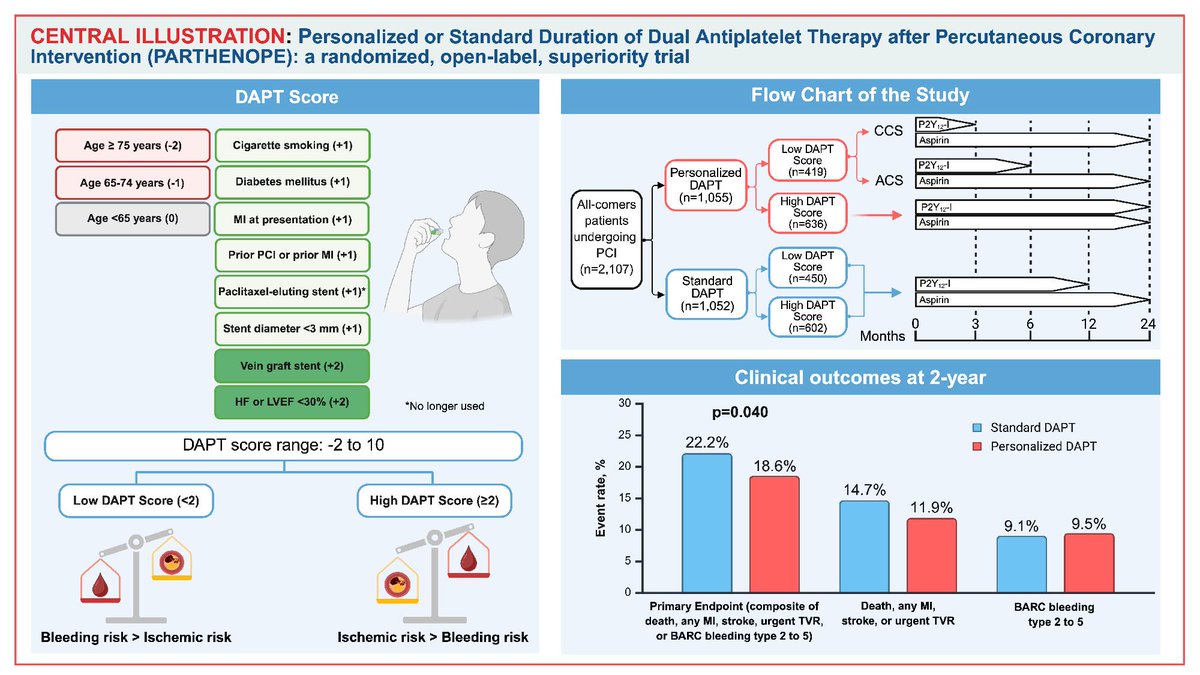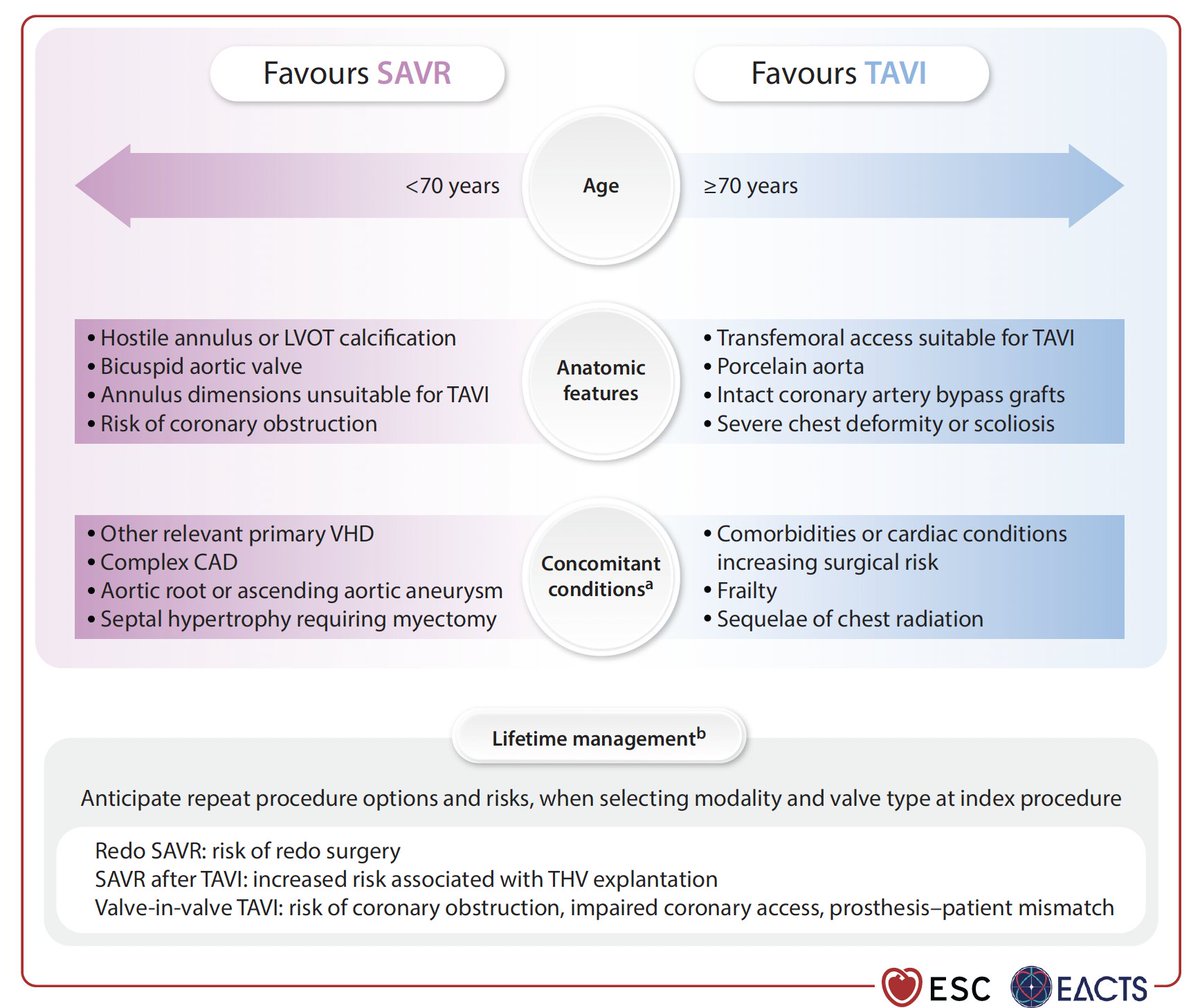
Davide Capodanno
@DFCapodanno
Followers
21K
Following
2K
Media
939
Statuses
2K
Professor of Cardiology at University of Catania, Italy. Editor-in-Chief of @EuroInterventio.
Catania, Sicily
Joined March 2019
In this state-of-the-art review, the authors summarize current antithrombotic strategies for patients undergoing complex PCI and discuss evidence from randomized clinical trials evaluating these regimens in this context. https://t.co/ul5CqPP87Q
2
88
284
The column “Spot the evil typo in the most famous guidelines” is back. After endless rounds of revisions, proofreads, and about 200 pairs of eyes scrutinizing every single word, the evil typo still manages to hide in plain sight, buried among a million words — and once you notice
2
6
36
Here are the Late Breakers from #AHA25. My initial favorites are – coming at you with some New Orleans groove: OPTIMA-AF – Short dual antithrombotic therapy after PCI in patients with atrial fibrillation CLOSURE-AF – Left atrial appendage closure versus medical therapy in AF
3
31
89
I think I have a positive bias toward the PARTHENOPE trial, not only because I was part of the Steering Committee and deeply respect the work behind it, but also because it does something rarely done when validating risk scores: randomization. Usually, we see validation based on
5
23
100
0
5
43
Davide Capodanno takes us from trials to practice as he explores the use of #colchicine including his most successful colchicine case & what patients make the best candidates @DFCapodanno #ESCCongress #CVD #atherosclerosis #HeartDisease
2
15
33
The main message of TAILORED-CHIP is less about confirming a paradigm and more about raising a hypothesis to be tested under proper conditions. Until dedicated trials provide evidence, “tailored” remains a euphemism for “empiric”—a modern label for old-fashioned guesswork.
3
17
54
Managing patients with atrial fibrillation and coronary artery disease remains a challenge. Up to 40% of patients have both conditions and need both anticoagulation and antiplatelet therapy. #ESCCongress
2
21
55
Yet another trial in STEMI with multivessel disease: in OPTION-STEMI, immediate complete revascularization was not shown to be non-inferior to staged complete revascularization during the index admission, looking at death, non-fatal MI, or unplanned revascularization at 1 year.
6
25
118
In patients undergoing #PCI, a personalized #DAPT duration from 3 to 24 months led to a lowered risk of net adverse clinical events than standard care consisting of 12 months of DAPT. https://t.co/N1YFaMUkku
#JACC #ESCCongress #WCCardio @piccoloraf @DFCapodanno
2
52
133
REBOOT, today’s highlight trial at #ESCCongress, has just been published in NEJM, with a key subanalysis also appearing in EuroIntervention. This subanalysis helps clarify one of the main clinical implications of the trial: in patients with MI and LVEF >40%, withholding or
2
36
116
There must be a rationale, but I honestly do not understand these curves, nor how their eventual convergence can result in a significantly reduced hazard ratio. The hazard ratio itself does not tell the whole story and, strictly speaking, should not even be reported here, since
7
24
145
The 2025 ESC/EACTS guidelines on the management of valvular heart disease have just been released, with an important update: the age threshold for the Heart Team to consider TAVI instead of surgical intervention has been lowered from 75 to 70 years in patients with tricuspid
5
93
213
The carbon footprint of a diagnostic coronary angiography procedure is estimated at 12.56 kg of CO2-equivalent emissions. Several areas for improvement are discussed in this research correspondence. https://t.co/KVdyJBIC15
1
13
30
In the double-blind, randomized FITTER trial, 150 patients with acute coronary syndrome and relevant non-culprit lesions received evolocumab or placebo for 12 weeks in addition to high-intensity statin therapy. PCSK9 inhibition did not produce additional short-term improvements
3
20
72
In one group, patients lost 20.4% of their baseline weight; in the other, only 3%. Also, in one group, almost everyone had nausea, vomiting, diarrhea, constipation, or abdominal pain. Yet the study was “blinded”—so investigators had no idea who got the placebo and who got the
6
2
29
Even though we conducted it, this is not the study that will settle the question once and for all. However, I find this result increasingly plausible and compelling: if you plan a short DAPT after PCI and wish to de-escalate, stop aspirin, not the P2Y12 inhibitor.
4
37
119
Device embolisation after left atrial appendage closure (LAAC) occurs in approximately 0.1% of cases—rare, yet memorable. Effective management requires familiarity with several critical aspects. This paper summarises the European Left Atrial Appendage Closure Club consensus
1
20
50





















